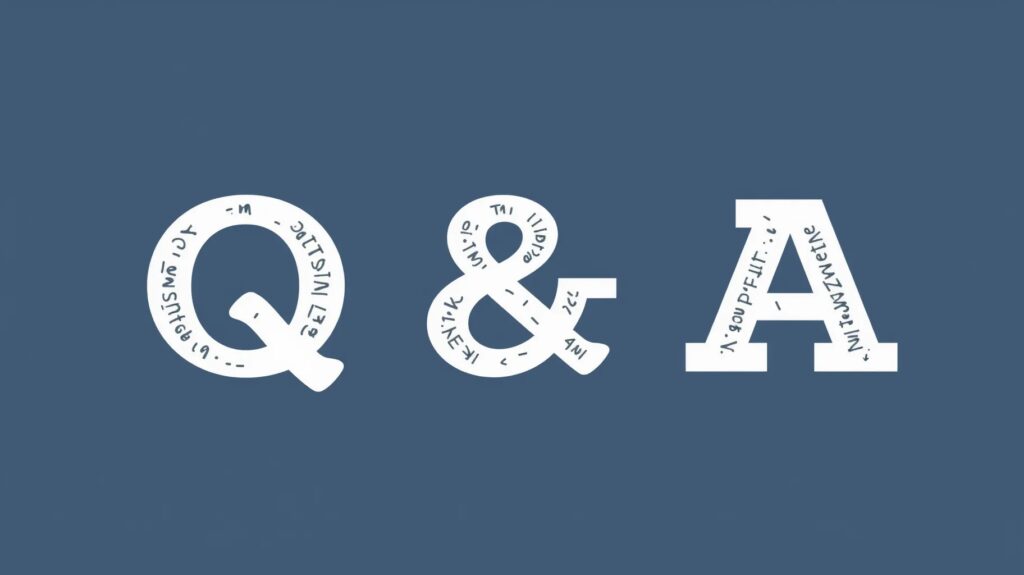
The rise of AI, especially models like OpenAI Whisper, is transforming professional settings, driving productivity and efficiency. But how far can AI go in replacing human professionals?
This article explores the strengths and limitations of OpenAI Whisper in professional environments and compares its capabilities with those of human experts.
What is OpenAI Whisper? Exploring Its Core Capabilities
OpenAI Whisper is an advanced AI language model created to interpret and respond to human queries. It’s commonly used in customer service, healthcare, legal support, and content generation, where it can streamline tasks and save time.
Speed and Efficiency
Whisper’s key strength is its speed and efficiency. Complex tasks like summarizing reports, analyzing data, or processing documents can take a human hours, but Whisper completes them in minutes. This ability makes it invaluable in high-volume industries.
Access to Extensive Data Sources
With access to vast datasets, Whisper can synthesize information from diverse sources rapidly. For example, it can generate comprehensive customer service responses by pulling information from previous interactions, user histories, and support policies.
24/7 Availability
Whisper offers consistent, round-the-clock support that never tires, a clear advantage in sectors like finance and healthcare, which operate 24/7. This level of availability helps maintain service standards even during off-hours.
The Limitations of OpenAI Whisper in Professional Settings

While Whisper has strong capabilities, it lacks the depth of understanding, empathy, and real-world judgment that human professionals bring, which are critical in specific industries.
Absence of Emotional Intelligence
Whisper is designed for language processing but lacks emotional intelligence. It cannot read non-verbal cues, tone shifts, or subtle emotional expressions, which are crucial in fields like HR, counseling, and healthcare, where human empathy makes a significant difference.
Struggles with Contextual Complexity
In dynamic or complex situations, Whisper’s contextual understanding is often limited. Areas like legal work and healthcare require nuanced judgment and contextual insight that only human professionals currently provide.
Privacy and Ethical Concerns
Implementing Whisper in professional settings raises privacy and ethical considerations. Sensitive data, such as medical or legal information, requires secure handling to protect confidentiality, a challenge that must be addressed with AI integration.
Comparing Human and Whisper Capabilities
A direct comparison of Whisper and human skills shows distinct strengths and limitations, helping clarify where each is most effective.
High-Stakes Decision-Making
In high-stakes fields like emergency response, surgery, or courtroom proceedings, human professionals bring essential experience, ethical consideration, and intuitive decision-making. Whisper can provide data-backed recommendations but lacks the ethical and situational judgment human experts rely on.
Creativity and Innovation
Whisper can assist in content generation, yet it lacks creative intuition and originality. Sectors like marketing, design, and creative writing rely on human creativity, storytelling, and cultural awareness to connect meaningfully with audiences and deliver fresh ideas.
Adaptability in Changing Environments
Human adaptability is unmatched in evolving, fast-paced fields like consulting, project management, and tech. Professionals quickly adapt to changing circumstances and learn from experience, while Whisper’s flexibility relies on reprogramming and updates.
Ideal Scenarios for Whisper and Human Collaboration

Rather than viewing Whisper and human professionals as competitors, many industries can maximize productivity through a hybrid approach where each complements the other’s strengths.
Data-Driven Tasks and Automation
Tasks such as data entry, report generation, and document processing are ideal for Whisper, freeing up human professionals to handle strategy and interpersonal roles. In finance, for instance, Whisper can analyze trends while human analysts craft strategies and manage client relations.
Customer Service Support
In high-volume customer service roles, Whisper can handle common inquiries, leaving complex or emotionally sensitive issues for human agents. This approach balances AI efficiency with human empathy, creating a positive customer experience.
AI-Assisted Decision Making in Healthcare and Legal Sectors
In healthcare and legal fields, Whisper can support professionals by providing background research and case histories, allowing human experts to make final judgments in ethically complex or nuanced cases.
The Future of Whisper and Human Professionals in the Workplace
Looking forward, integrating AI and human skills will be essential. Whisper’s efficiency and knowledge breadth can greatly enhance productivity, while human empathy, adaptability, and critical thinking remain irreplaceable. A balanced, collaborative approach will help both AI and human professionals reach their full potential, offering workplaces the best of both worlds.
Final Thoughts
While OpenAI Whisper holds significant potential for boosting productivity and automating repetitive tasks, it cannot fully replace the nuanced, ethical, and empathic skills human professionals bring to the table. Embracing AI-human collaboration enables industries to harness the benefits of both, creating a productive, ethical, and efficient future for the professional landscape.
Further Reading
- How AI is Changing the Future of Work
- Ethical Considerations in AI and Machine Learning
- The Role of AI in Enhancing Workplace Productivity
FAQs

What are the limitations of Whisper compared to human professionals?
Whisper lacks emotional intelligence, struggles with nuanced judgment, and often falls short in contexts requiring deep understanding. Fields like HR, healthcare, and law still rely on human professionals for their critical thinking and ethical judgment, where empathy and complex decision-making are essential.
In which scenarios can Whisper and human professionals work best together?
The best results come from a hybrid approach. Whisper excels in data-driven, repetitive tasks—like processing reports or answering standard customer inquiries—while human professionals handle complex, sensitive issues. Together, they offer efficiency and empathy in areas such as customer service, healthcare support, and financial analysis.
How is Whisper different from other AI models?
Whisper stands out for its advanced language processing capabilities and extensive data access, allowing it to respond to a wide range of queries with high accuracy. Unlike basic chatbots, which often rely on limited scripts or predefined responses, Whisper can draw from vast data sources to deliver nuanced answers, making it highly adaptable in professional settings like legal research, customer support, and financial services.
Can Whisper make ethical or high-stakes decisions?
No, Whisper is not suited for making ethical or high-stakes decisions. While it can analyze data and provide recommendations, it lacks the nuanced judgment, intuition, and ethical framework that human professionals bring to complex situations. For fields requiring ethical decisions, such as medicine or law, Whisper can assist by offering background information, but final decisions should be left to experienced human experts.
Does Whisper pose any privacy or security risks?
Yes, implementing Whisper or similar AI in sensitive environments like healthcare and law requires careful management of privacy and security concerns. Since AI processes vast amounts of data, including potentially sensitive information, organizations must establish strict data governance policies to ensure compliance with privacy standards and protect confidential information.
Can Whisper be used for creative work?
Whisper can assist with certain aspects of creative work, such as content drafting, brainstorming ideas, or generating structured outlines. However, it typically lacks the creative intuition and cultural awareness that human professionals bring to fields like marketing, design, and storytelling. For truly original or deeply personal work, human creativity remains essential, with Whisper best used as a supportive tool.
How can Whisper adapt to changing information?
Whisper is updated with new information through training sessions and data updates but does not learn in real time as humans do. This makes it suitable for structured environments where updates are managed externally. In fast-changing fields, like technology or policy analysis, human professionals are better equipped to adapt quickly, while Whisper may require regular updates to stay current.
Can Whisper replace human professionals entirely?
No, Whisper cannot fully replace human professionals, particularly in roles that require empathy, critical thinking, and complex decision-making. While Whisper excels at processing data and handling repetitive tasks, human qualities—such as intuition, ethical judgment, and adaptability—are crucial in fields like healthcare, law, counseling, and management. Whisper is best viewed as a complementary tool rather than a replacement.
How does Whisper handle complex or ambiguous language?
Whisper can interpret a wide range of structured language but may struggle with ambiguous or complex phrasing that requires nuanced understanding. Situations involving sarcasm, idiomatic expressions, or multiple meanings may result in inaccurate responses. In these cases, human professionals are better equipped to navigate complex language and contextualize meaning, especially in fields like customer support and literary work.
Is Whisper able to improve over time with use?
Whisper can be enhanced through periodic updates and retraining with new data, but it does not learn autonomously from its interactions like humans do. Instead, any improvements come from large-scale updates managed by developers. This makes Whisper effective for standardized tasks, but it’s less flexible than human professionals who learn and adapt based on experience and feedback.
What industries benefit most from Whisper’s capabilities?
Industries with high-volume, data-intensive tasks benefit the most from Whisper’s capabilities. Sectors like finance, customer service, e-commerce, and basic administrative functions can use Whisper to streamline operations, handle routine inquiries, and manage repetitive workflows efficiently. However, in people-centered fields requiring empathy and personal judgment, human professionals remain essential.
Can Whisper work in multiple languages?
Yes, Whisper supports multiple languages, making it useful for multinational companies and customer service roles that require multilingual support. However, its proficiency varies across languages, and it may not capture cultural nuances as accurately as native speakers. For complex translations or culturally sensitive communication, human translators still provide a higher degree of accuracy and contextual relevance.
Is Whisper suitable for sensitive roles like counseling or therapy?
No, Whisper is not suitable for roles requiring emotional sensitivity and personalized support, such as counseling or therapy. While it can respond to language-based queries, it lacks the emotional intelligence to interpret non-verbal cues, tone, and underlying feelings. Human therapists bring empathy, cultural awareness, and the ability to adapt to individual needs, which are essential qualities in mental health and counseling roles.
How does Whisper impact job roles in customer service?
Whisper can significantly improve efficiency in customer service by managing routine queries, providing quick responses, and offering 24/7 availability. It can handle a large volume of standard questions, freeing human agents to focus on more complex or emotionally sensitive issues. This approach allows companies to maintain high service levels while ensuring that human agents are available for interactions that require empathy and in-depth problem-solving.
What ethical considerations come with using Whisper in the workplace?
Using Whisper in the workplace brings up several ethical considerations. Privacy is a top concern, particularly in sectors like healthcare and finance, where sensitive data is involved. Additionally, there’s the potential for bias, as AI models can reflect biases present in their training data. Ethical use of Whisper requires transparency, regular auditing for fairness, and strict data handling policies to protect users’ rights and ensure compliance with legal standards.
Can Whisper be used for educational purposes?
Yes, Whisper can be a valuable tool in education for providing information, tutoring assistance, and generating practice exercises for students. It can help automate grading, offer language learning support, and generate study materials. However, it lacks the ability to offer personalized mentorship or to adapt dynamically to a student’s unique learning style, a key strength that human educators bring to classrooms.
Is Whisper a cost-effective solution for companies?
For companies dealing with high volumes of repetitive tasks, Whisper can be a cost-effective solution by reducing the need for human input in routine inquiries and data processing. However, initial setup, data privacy compliance, and periodic updates involve costs that must be managed. The long-term value of Whisper is highest in environments where it supports, rather than replaces, human workers, allowing companies to enhance productivity without compromising quality.

